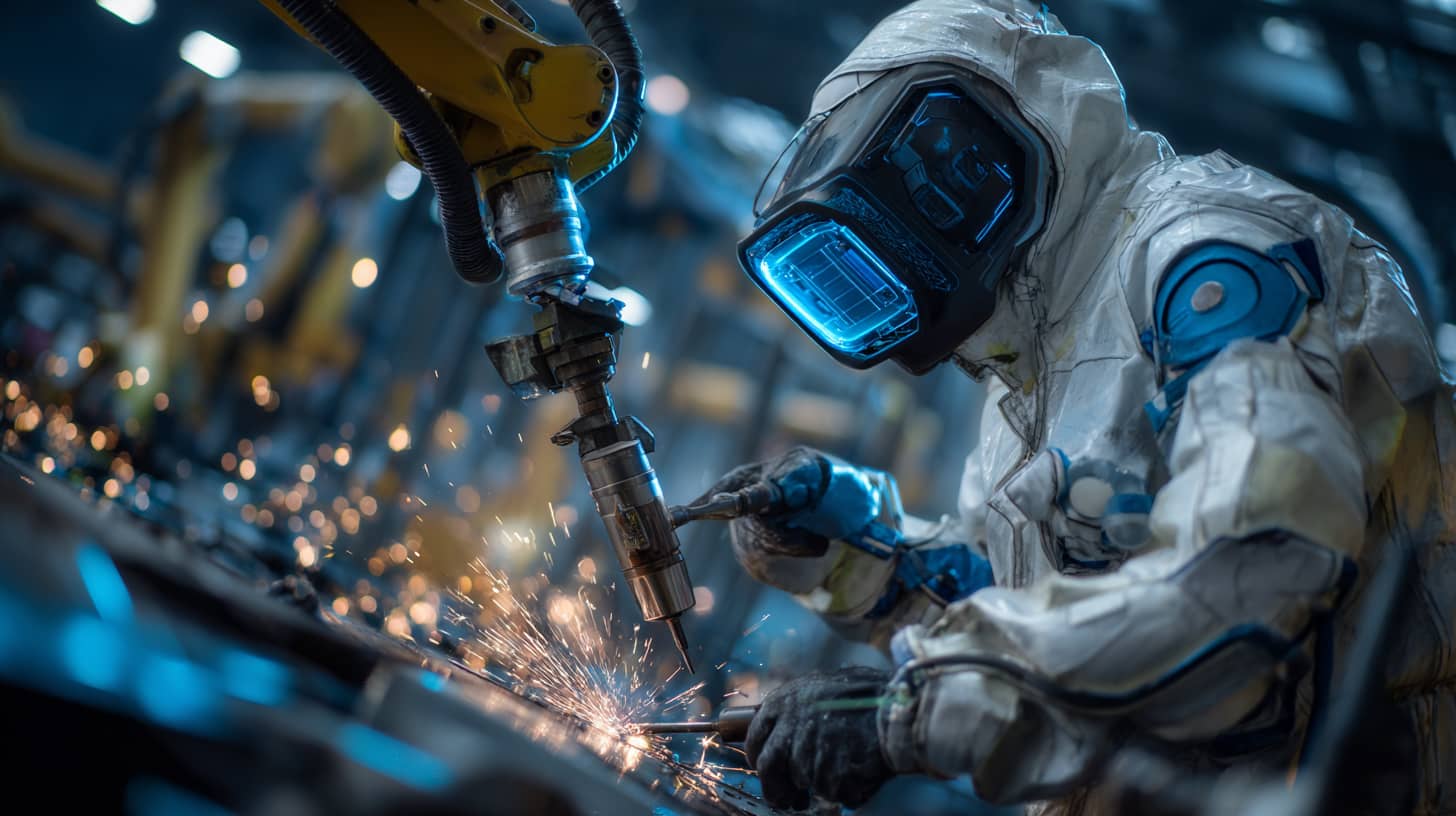Revolution in industrial coating through fully automated systems
What happens when machines learn to protect themselves? In modern production plants, robots not only coat automobiles, but also their own housings and the systems in which they work. This technological revolution is fundamentally changing the way we think about industrial coating.
Why do robots need surface protection at all?
Industrial robots work under extreme conditions. Welding spatter, aggressive cleaning agents, mechanical stress and temperature fluctuations damage the surfaces. Without professional surface protection, expensive systems will fail within months.
The challenge: Traditional coating processes require production stops. Robots have to be dismantled, transported to separate paint booths and reinstalled after coating. This downtime costs hundreds of thousands per day.
Intelligent coating systems for Industry 4.0
Modern system coating service solutions rely on in-situ processes. Specialized coating service providers develop systems that coat robot components on site while production continues.
Epoxy resin coating service is becoming the key technology here. These systems cure at room temperature and yet offer high-temperature resistance up to 200 degrees Celsius. Robot joints remain mobile, sensors remain functional.
Precision through automated quality control
How do you ensure that every square centimeter is perfectly coated? Through integrated coating inspection service systems. Laser scanners measure layer thicknesses in real time, while AI algorithms detect irregularities immediately.
Surface analysis service takes place continuously during application. Sensors monitor temperature, humidity and material flow. Deviations are automatically corrected before errors occur.
Rethinking maintenance cycles
Traditional coating maintenance service follows rigid schedules. Modern systems rely on predictive maintenance. Sensors continuously monitor the surface condition and report maintenance requirements before damage occurs.
This intelligent surface repair reduces unplanned downtime by up to 80 percent. Paint damage repair service is only carried out where action is actually required.
Environmental protection through closed systems
Automated coating systems minimize material losses and emissions. Precise dosing reduces overspray, while closed recycling systems recover solvents.
Certified coaters program these systems according to ISO-compliant surface treatment standards. Every spraying process is documented and fully traceable.
Cost efficiency through standardization
Robotized industrial coating enables reproducible quality at reduced costs. Once programmed, the systems work 24/7 with constant precision.
Coating companies are increasingly commissioning complete solutions that offer hardware, software and service from a single source. This system integration reduces interfaces and optimizes overall processes.
Technology transfer to other sectors
What works in the automotive industry is conquering other sectors. Chemical plant coating, power plant surface protection and even offshore coating services benefit from robotic innovations.
Steel construction coating specialists use mobile robot systems for large structures. Pipeline Coating Service uses autonomous crawlers that coat pipelines independently.
The future is already here
When robots paint robots, new opportunities for quality, efficiency and sustainability arise. Industrial coating is moving from reactive maintenance to proactive system optimization.
The technology is available and the benefits are measurable. Companies that invest now will secure competitive advantages for the next decade.
